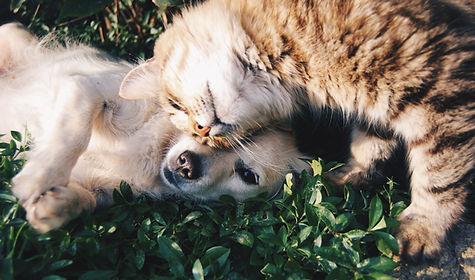
2222 SR 109
Hoquiam, WA 98550
Save Them All

There are 9,000 healthy and treatable dogs and cats euthanized each day in the United States, and thankfully, so many great shelters are working to fight that statistic. The no-kill movement in particular is dedicated to reducing the euthanasia of healthy pets, and creating more effective shelter systems.

Ways to Help Save Them All:
Adoption saves lives. By increasing the number of people who adopt pets, we know we can end the killing. Whether you find your new pet at NB PAWS or at a different shelter, adopt a pet to help Save Them All.
Lend a hand to help homeless pets find loving homes. From socializing puppies to photographing the animals, there are many opportunities to help. Volunteer to Save Them All.
Financial gifts of every size help provide food, medical care and shelter for the animals. Donate to Save Them All.
Spaying and neutering your pets helps reduce the number of animals who enter shelters, while initiatives like trap/neuter/return help to humanely control cat populations. Spay/neuter to Save Them All.
Tell your friends what you're doing to Save Them All – and encourage them to get involved, too. Share on Facebook or Twitter with #SaveThemAll.
North Beach PAWS is a No Kill shelter, but what does that mean?
It means that we save all healthy, treatable and rehabilitatable animals. Only "unadoptable" or "non-rehabilitatable" animals are euthanized.
Adoptable animals include only those animals eight weeks of age or older that, at or subsequent to the time the animal is impounded or otherwise taken into possession, have manifested no sign of a behavioral or temperamental defect that could pose a health or safety risk or otherwise make the animal unsuitable for placement as a pet, and have manifested no sign of disease, injury, or congenital or hereditary condition that adversely affects the health of the animal or that is likely to adversely affect the animal's health in the future.
Adoptable dogs may be old, deaf, blind, disfigured or disabled.
A treatable animal shall include any animal that is not adoptable but that could become adoptable with reasonable efforts.
"Sick, traumatized, infant or unsocialized dogs need appropriate medical treatment, behavior modification and/or foster care to turn them into healthy animals ready for placement.
"Unadoptable" and "non-rehabilitatable" means animals that are neither adoptable or treatable. By way of exclusion, SB1785 defines "unadoptable":
-
Animals eight weeks of age or younger at or subsequent to the time the animal is impounded
-
Animals that have manifested signs of a behavioral or temperamental defect
-
Those that could pose a health or safety risk or otherwise make the animal unsuitable for placement as a pet and
-
Animals that have manifested signs of disease, injury, or congenital or hereditary condition that adversely affects the health of the animal or that is likely to adversely affect the animal's health in the future